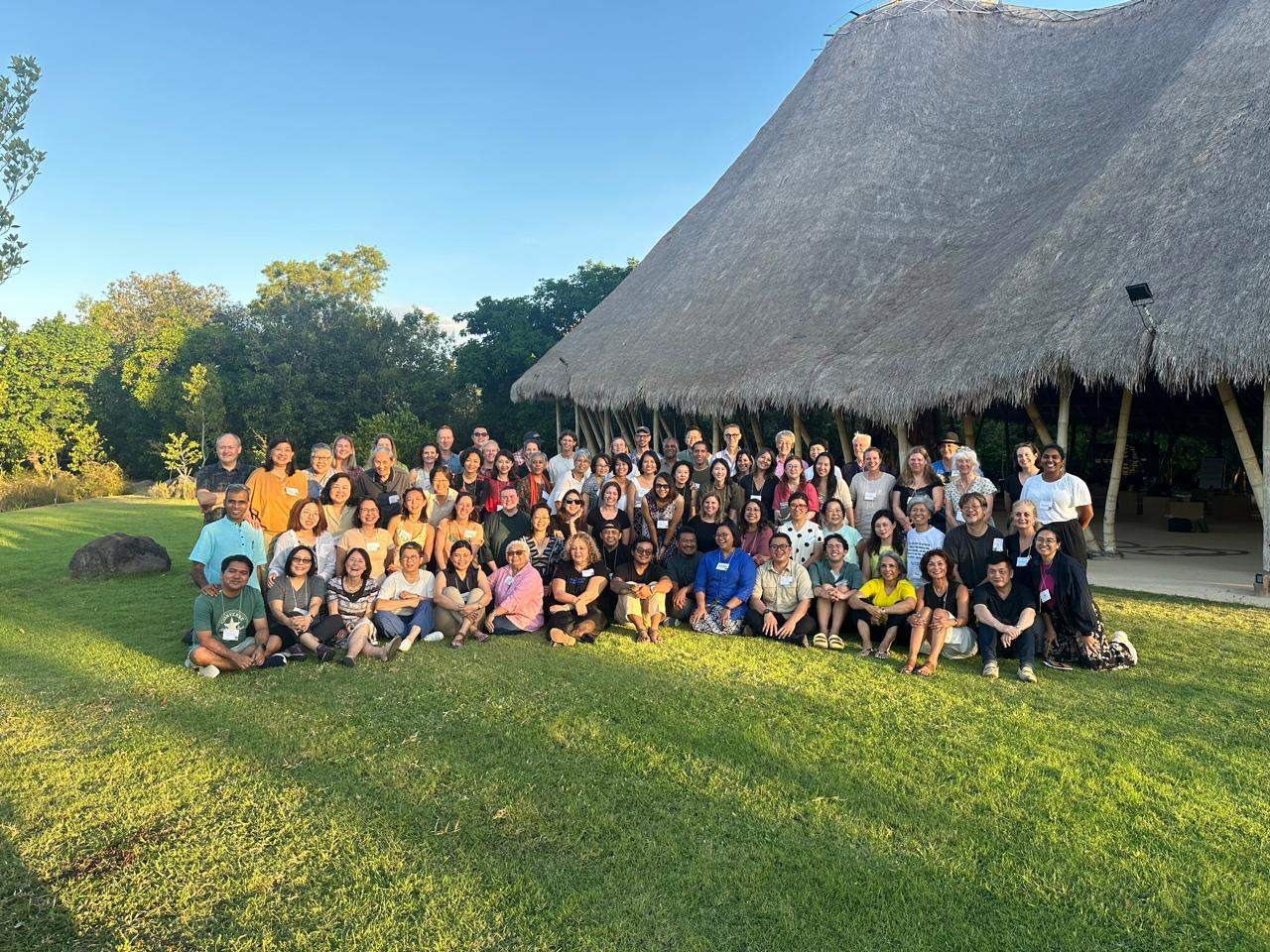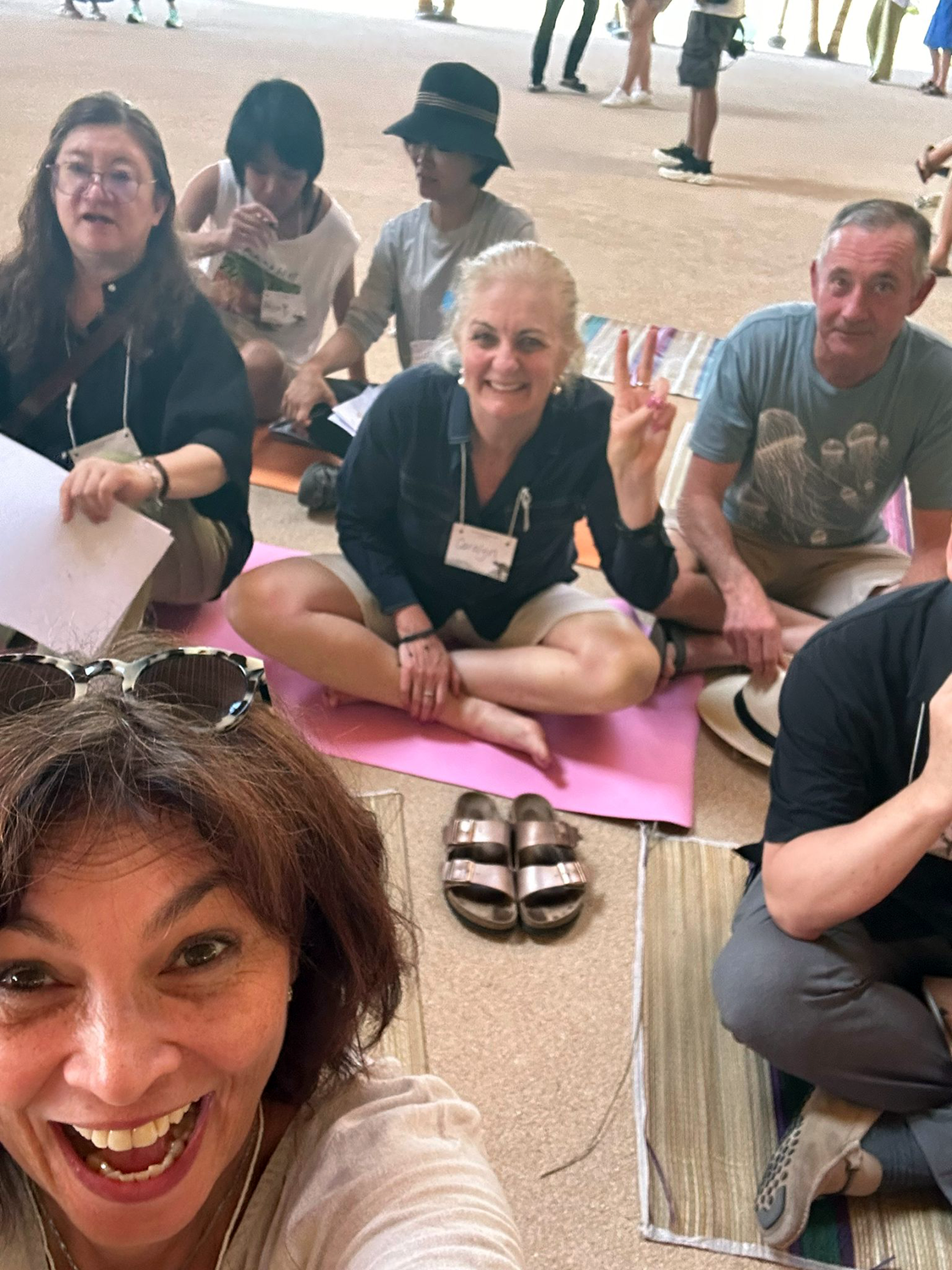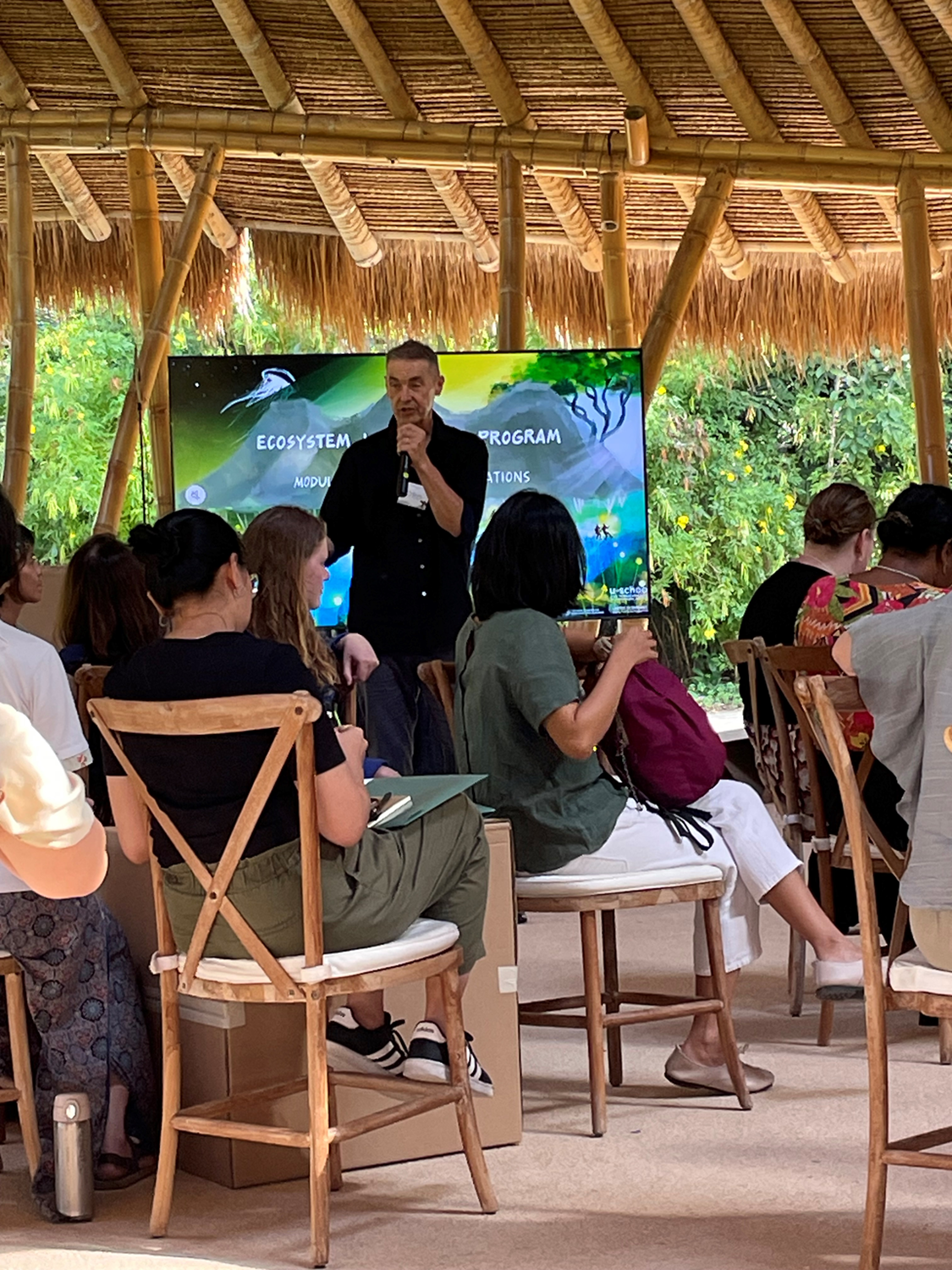Ecosystem Leadership Program Asia Pacific 2024
The Oxford Dictionary has defined resilience as the capacity to withstand or to recover quickly from difficulties; toughness. As an organisation, Mulloon Institute not only helps develop resilience in landscapes but we have developed resilience through recovering quickly from difficulties. Gary Nairn’s final words to me were, “Keep up the good work”. That is exactly what the Mulloon team has done in the face of losing our beloved inaugural Chairman.
Our education and capacity building program goes from strength to strength, we are delivering a report for WaterNSW that articulates what landscape rehydration is and why it is important, and we are finalising a ‘proof points’ document that will assist in communicating the data coming out of the Mulloon Rehydration Initiative.
We are also closing in on the approval of landscape rehydration works on the Molonglo floodplain, designed to save the last surviving population of the Green and Golden Bell Frog on the Southern Tablelands. We have been working on this project at the request of the NSW Government, Saving Our Species unit in the NSW Government since 2019.
Spring is also a time to reflect on our growing international recognition. In June I travelled to Zambia as part of a sustainable agriculture and livestock delegation with Cristina Talacko, CEO of the Coalition for Conservation and Dean Belfield (Regenerative Farmers Australia), and funded by the Gates Foundation. Guided by His Excellency Dr Elias Munshya, Zambia’s Ambassador to Australia we met Government Ministers and various stakeholders to make the case for an education program and demonstration site. The aim is to inspire Zambian subsistence farmers who are facing the biggest drought in 40 years and seeing famine ravage the south of their country. You can read more about this incredible journey on my blog posts.
In late August at the invitation and with financial support from Commonland and Mulloon Institute, I attended the Ecosystem Leadership Program Asia Pacific 2024. This course is being delivered via the Presencing Institute and MIT Scholar Otto Sharmer who developed Theory U as a change framework and set of methodologies that have been used by thousands of organisations and communities worldwide to address our most pressing global challenges: climate change, food systems, inequality and exclusion, finance, healthcare and education. Module 1 of 3 was an intensive in-person program in Bali where I joined 85 other change-makers and innovators from across various sectors in the Asia Pacific including a contingent of folk from WA, Melbourne and Canberra. The goal is to activate and support a global movement for planetary healing and societal regeneration. All of us came away feeling the potential for us to contribute to the transformational social change required to heal our landscapes and societies.
Ecosystem Leadership Program Asia Pacific 2024
We have also been working with the German-based Economics of Land Degradation (ELD) who have been commissioned by the United Nations University to develop case studies from across the world for the Global Drought Resilience Report. Chris Inskeep and Richard Savage have been preparing the Mulloon Rehydration Initiative Case Study for inclusion in the report. The Mulloon Case Study will be presented at COP 16 of the Convention to Combat Desertification (UNCCD) in Riyadh in Saudia Arabia in December 2024.
This global recognition comes in anticipation of the Global Nature Positive Summit in Sydney on 8-10 October 2024 which we look forward to attending.
As an organisation, despite setbacks and challenges of the deepest sadness, we “keep up the good work” and in doing so, become stronger and more resilient as a team and as an organisation.
Ecosystem Leadership Program Asia Pacific 2024
Ecosystem Leadership Program Asia Pacific 2024



